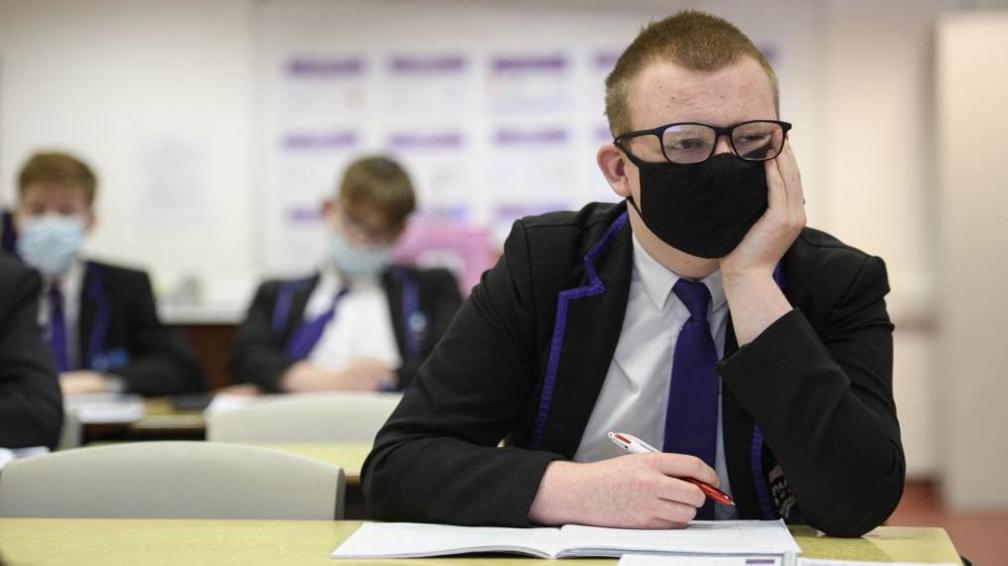'Pupils still catching up after city's lockdowns'
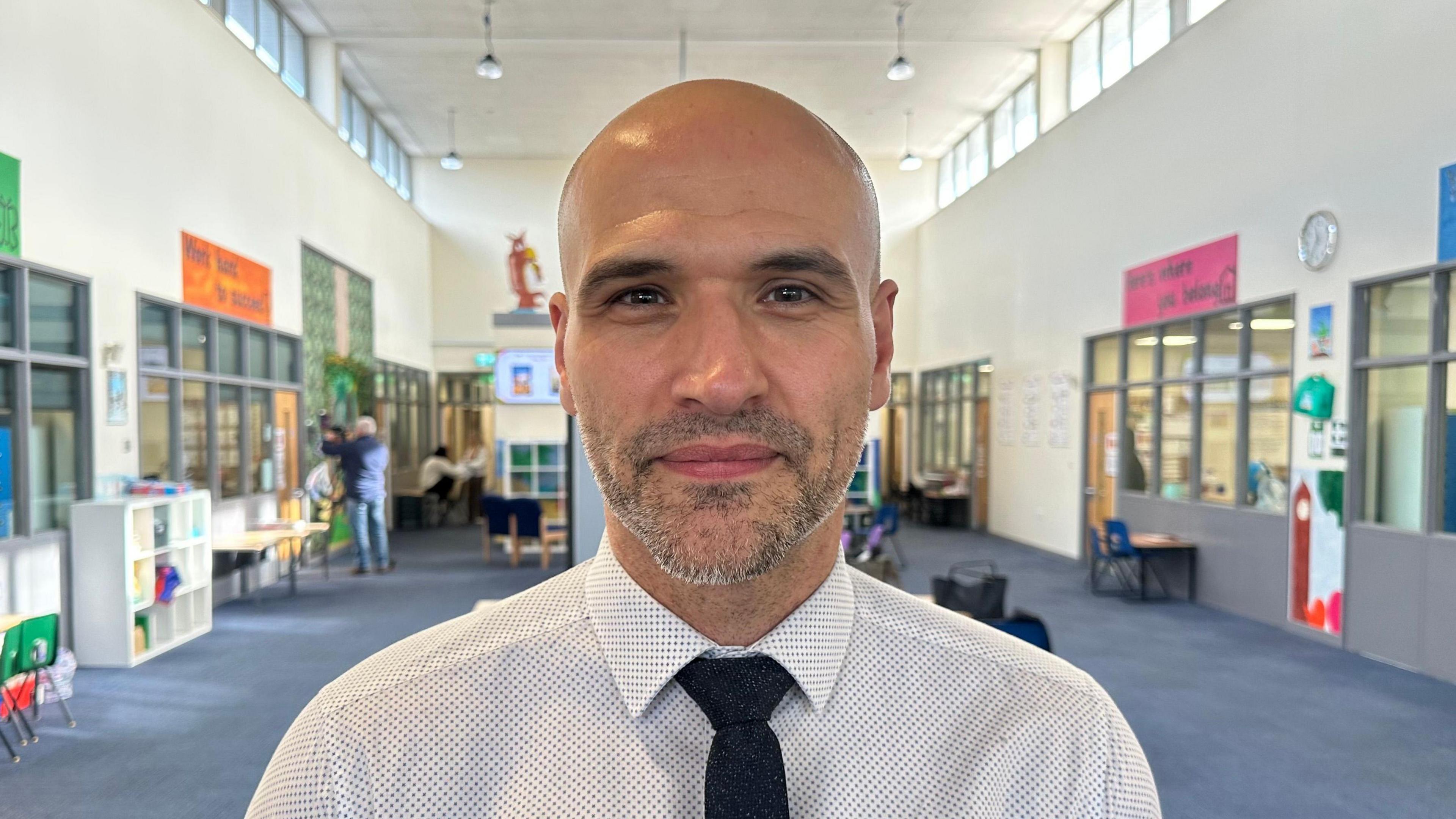
Head teacher Halil Tamgumus said the Covid lockdowns affected pupils socially and educationally
- Published
A head teacher who steered his school through the "confusion, worry and anxiety" of the Covid lockdowns says some of his pupils are still catching up five years later.
Halil Tamgumus said some children at Braunstone Community Primary School in Leicester were left with gaps in their education after being away from their classrooms during the pandemic.
Schools in the city closed to most pupils during nationwide restrictions in March 2020, but were also shut during the UK's first local lockdown in the July following a spike of coronavirus cases.
"It was almost a year of children being in and out and not getting the education you'd expect them to have in a school setting," Mr Tamgumus said.
The head teacher said he thought the school's current Year 5 and 6 cohorts, now aged 10 and 11, had been affected the most after missing "large swathes" of social interactions and classroom learning.
He said: "We were so used to being separated, disconnected, and isolated.
"We still feel the remnants of some of that, but we have worked so hard to make our children feel they are part of something again and that belonging, which is so important."
Mr Tamgumus said, after pupils returned to the classroom, the effect of the school closures meant teachers were "trying to build on top of foundations that were not solid".
'Gaps created'
"We found that every time we taught them something else, in the years after they came back, they didn't have the prerequisite knowledge to be able to build on that," he explained.
"We had to go back to go forward and it took a long time to do some sort of retrieval."
He added attainment "has not been as strong for the school and we believe that's down to the gaps created by Covid".
Mr Tamgumus added: "The biggest hurdle will be the gaps in their knowledge, so secondary schools will have to continue the work we have been doing."
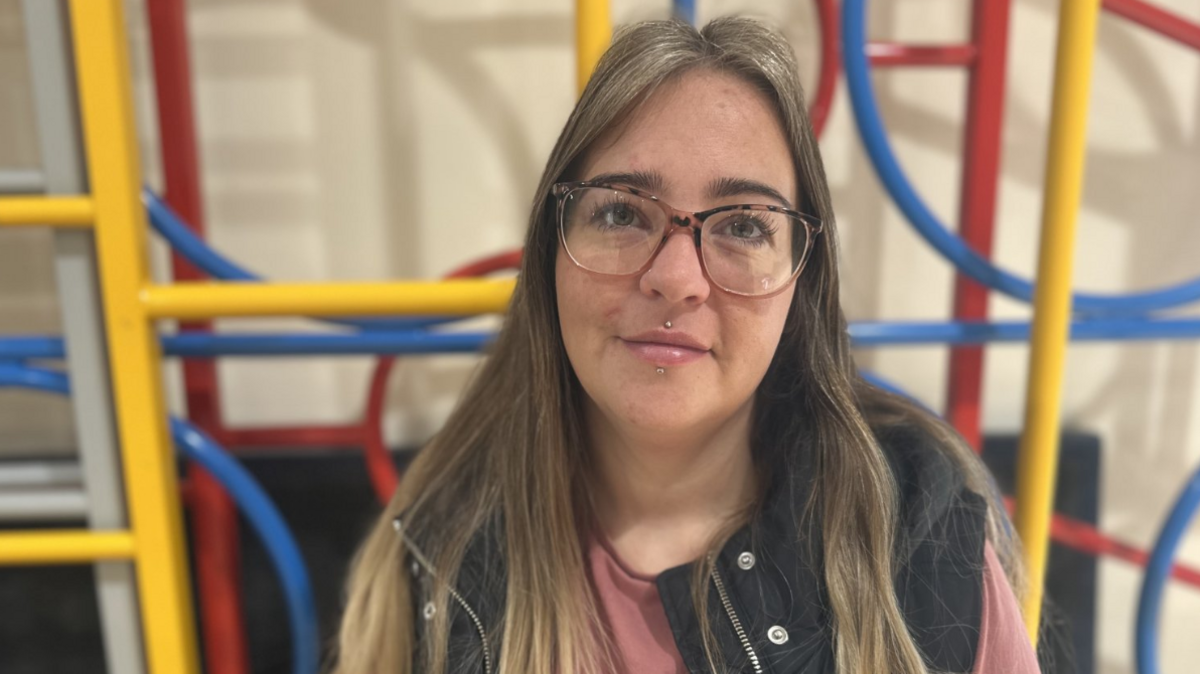
Teacher Tamsin Moore thinks the impact of lockdown will follow some children into early adulthood
Teacher Tamsin Moore said her colleagues and the children had quickly adapted to online teaching during the lockdowns, adding pupils were keen to learn when they returned to school.
"Everything now is at a slower pace and we have to take a step back to fill the gaps so we can move forward to get them learning and where they need to be for their age range," she said.
"It's ongoing. Some children will have recovered. Some are still recovering.
"I think some of the impacts have been lasting and damaging, and it will follow them into early adulthood."
Mr Tamgumus said children had recovered from the isolating effects of lockdown quickly.
He said: "When the children came back in [to school], they told us they missed us and they missed each other.
"The children missed the structure and the support network of their peers and the staff in the school.
"Some would say they really enjoyed it and they were really glad they were at home, but they were still missing certain aspects of social interaction.
"Socially, we're there now - the children are back in the fold now. They learn quickly."
School Covid-19 timeline
23 March, 2020 – all schools in the country close as part of the first national lockdown
1 June – a national phased return to school begins
8 June – a school in Leicester closes after a series of infections as testing is stepped up in the city
2 July – all schools in the city close again as the first local lockdown is implemented
24 July – schools and nurseries are allowed to reopen
5 November – a second four-week "circuit breaker" national lockdown starts though schools remain open
6 January, 2021 – a third national lockdown begins with all schools closed and summer exams cancelled
8 March – schools reopen
Get in touch
Tell us which stories we should cover in Leicester
Follow BBC Leicester on Facebook, external, on X, external, or on Instagram, external. Send your story ideas to eastmidsnews@bbc.co.uk, external or via WhatsApp, external on 0808 100 2210.
Related topics
- Published30 June 2020
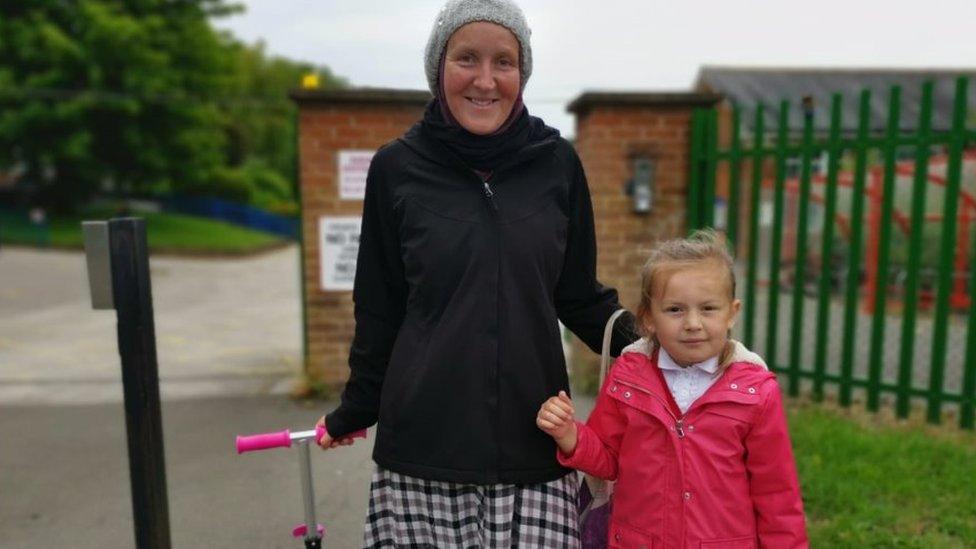
- Published12 July 2020
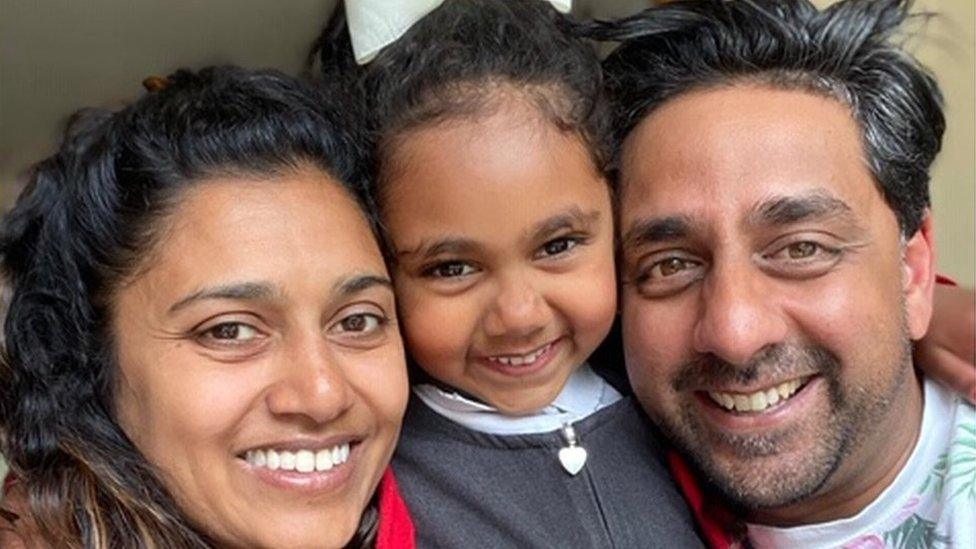
- Published7 October 2020
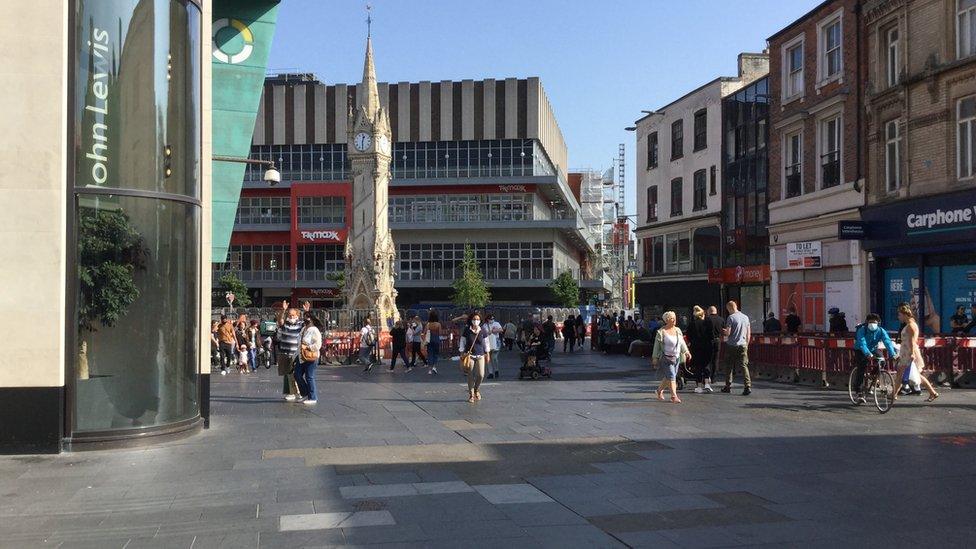
- Published6 October 2023
